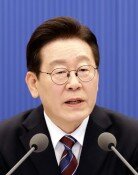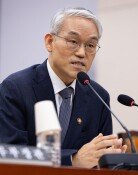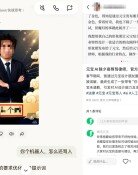Bush's policy towards North Korea
Bush's policy towards North Korea
Posted November. 08, 2000 20:04,
¡°The workload has increased.¡±
This was a comment made by a high level official of the Korean government after Republican candidate George W. Bush was elected as the next U.S. president. Government officials could not hide their concerns despite saying on the outside that the new Republican government would maintain the basic framework of the policy towards North Korea.
The Republican Party platform established in July states that North Korea is alienating itself from the international community and the possibility of war remains even after the South-North summit meeting. The fundamental perspective is different from South Korea's policy of engaging the North.
Professor Kim Sung-Han of the Foreign Affairs and National Security Institute forecast that the Bush administration will not entirely abandon its proactive policy towards North Korea but unilateral support will be reconsidered and problems related to the redirection of fuel and food will be mentioned. A stern, mutually beneficial relationship with North Korea is expected. Hence, the most important issue between the North and the U.S., which is also drawing global attention -- President Clinton¡¯s visit to Pyongyang -- may be abandoned as the administration changes unless North Korea shifts its attitude on the missile issue. A high level official in the government remarked that as the political burden regarding Clinton's visit to North Korea will not increase, the visit may become easier, but the press will not allow this.
The election of Bush, who adopts a deterrence-oriented perspective towards North Korea as opposed to an open-arms attitude, may put a burden on the budding South-North relations. Professor Kang Sung-Yoon of Dongkuk University remarked that the North Korean government¡¯s will for change during the transition of the administration in the U.S. will be a major issue and in the short term this may accelerate the improvement of South-North relations. Trends in South-North relations will be studied until the first NSC meeting after Bush's inauguration. The most affirmative message North Korea can send in showing its will to change is Kim Jong-Il¡¯s visit to Seoul and the implementation of the South-North joint declaration. The exchange visits of separated families and other exchanges between the two Koreas will also be indicators. If North Korea shows a positive attitude toward these issues, the Bush administration may be more flexible when formulating policy towards Pyongyang.
In any case, the emergence of the Bush administration will considerably influence North-U.S., South-North and South-U.S. ties, as well as the 4-strong geopolitical status. Hence, necessary measures need to be quickly formulated. Yoon Young-Kwan, a Seoul National University professor of foreign affairs, warned that Bush has already announced his intention to proactively push for the NMD, which is opposed by Russia and China, and added that sour relations between the U.S. and China will have a negative effect on the Korean peninsula. He also claimed that as there is a possibility of the environment surrounding Korea growing colder, the effectiveness of the government's foreign affairs efforts will be the main factor.







